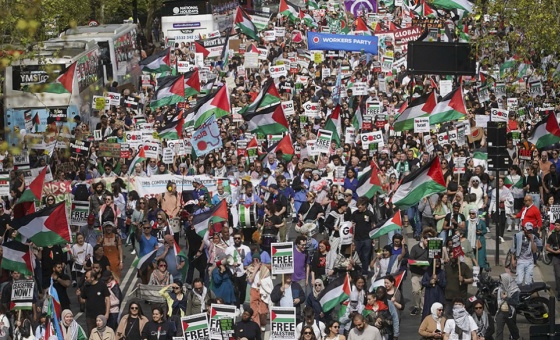This is the last article you can read this month
You can read more article this month
You can read more articles this month
Sorry your limit is up for this month
Reset on:
Please help support the Morning Star by subscribing here
I CAUGHT up with Bolivarian Socialist Workers Federation Vice-President Egle Sanchez on Monday at a busy Holborn pub following her weekend appearance at the annual Latin America solidarity conference at TUC Congress house.
With nationwide mayoral elections — the third polls this year — set for tomorrow, Sunday December 10, President Nicolas Maduro’s United Socialist Party (PSUV) government is looking to ensure peace and stability across the country.
When I was in Venezuela in September for an international solidarity conference I saw calm had returned to the streets of the capital Caracas after four months of opposition “guarimba” (a popular dance throughout Central America) of unrest and economic sabotage. Is that still the case?
“It’s Christmas now and people are in the streets, organising their festive activities,” Sanches says. “There is peace, the streets are calm.
“Violence like when they burnt people alive or murdered them has stopped.
“Of course there is an economic war, that is very clear to us — an economic war imposed by the US empire,” she explains.
But internationally mediated talks between the government and the opposition Democratic Unity Roundtable (Mud) coalition are back under way in the Dominican Republic and “they can stop their attacks on the Venezuelan people.”
Sanchez predicts a big victory for the PSUV in Sunday’s election for 335 municipal mayors.
After those mayoral elections comes next year’s presidential election and “an agreement must be reached with the opposition to ensure they respect the economic peace of the country,” she says.
“One of the things that has hurt their supporters as much as ours is the problem of the economy. We believe that when the US gets its claws out of us, we can solve ourselves the problems we face in Venezuela,” she adds.
“The country’s banks have money ready to be invested and to import medicines and other products whose prices have been inflated by the four-year economic crisis,” Sanchez says.
But Mud “depends on the US. It’s the US that gives the orders, not their leaders.”
Sanchez is optimistic about Sunday’s election after victory in October’s regional governor elections: “Chavismo, with all the economic crisis, with the food problems, won 18 governorships out of the total of 23.”
But what are the day-to-day workers’ struggles of the CBST (an organisation set up in 2011 as a successor to the Bolivarian Workers’ Federation to organise workers in support of late president Hugo Chavez’ Bolivarian revolution)?
“The struggle of my union is everyone’s struggle: a better country, a better society, better homes, more homes and the defence of the revolution.” Her union — the graphical workers — are “more revolutionary than before,” she tells me.
Are there strikes?
“No. There aren’t any because the government doesn’t mistreat the workers and when a private-sector employer tries to take away their rights the government intervenes to protect them.”
What about the women’s struggle?
“The women in Venezuela enjoy wide protection by the government, there are laws against domestic violence and gender violence.
“And where there are vulnerable women living in poverty, what does the government do? It establishes a minimum salary to help them out of poverty.
“Also any women over 55 years, who are not already paid-up to the social security system, have the right to a pension — state benefit against extreme poverty. In what country of the world do they have that?,” Sanchez asks.
And what about families?
“We are supporting six million families, through CLAPS (local production and distribution committees).
“They receive every month a 19kg food parcel they buy for 15,000 bolivars (£1 at the black market rate) that would cost without subsidy 320,000 bolivars” (just over £20).
Sanchez also points out that the state gives grants to 9,000 university students at 29 universities throughout the country. “This is making a revolution,” she says.
This autumn, as it did last year, the state provided all children of pre-school age with their books free of charge: “We are improving things every day — from first grade to baccalaureate,” she tells me confidently.







